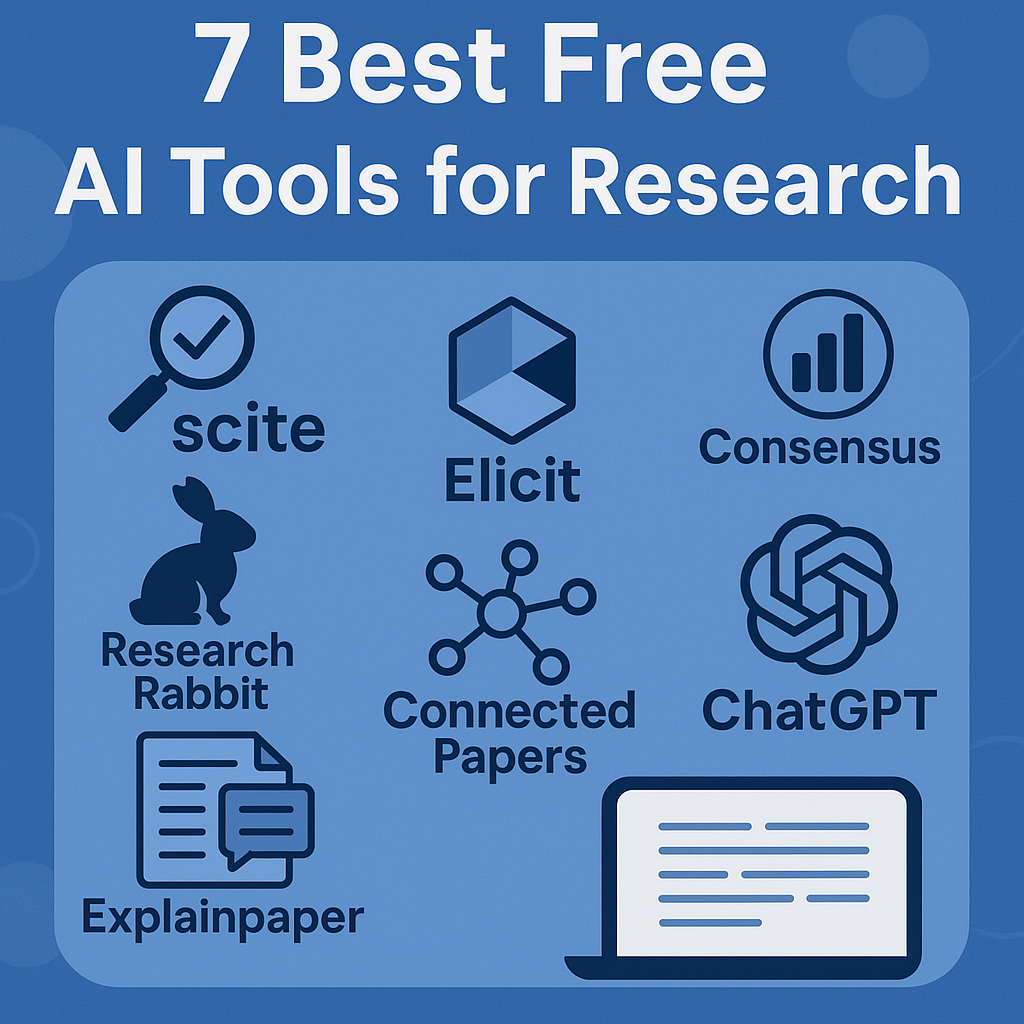In today’s fast-changing research environment, artificial intelligence (AI) has emerged as an essential partner. Whether you’re a student, scholar, or professional researcher, utilizing AI tools can greatly boost your efficiency and elevate the caliber of your work. Drawing inspiration from the video “7 BEST, 100% FREE AI Tools For Research In 2025,” here are seven exceptional AI tools that combine power with accessibility—completely free of charge
1. Scite.ai
Scite.ai revolutionizes the way researchers interact with scientific literature. Unlike traditional citation indexes, Scite.ai provides “Smart Citations” that show not just how many times a paper has been cited, but also the context—whether subsequent papers support, mention, or contrast the findings. This nuanced view helps researchers quickly assess the impact and reliability of studies.
2. Elicit
Elicit is an AI research assistant designed to streamline the literature review process. By inputting a research question, Elicit searches academic databases to find relevant papers, summarizes key points, and even extracts methodologies and results. This tool is invaluable for quickly gathering and synthesizing information on a given topic.
3. Consensus
Consensus uses AI to extract and summarize findings from scientific research papers. By entering a question, users receive concise, evidence-based answers drawn directly from peer-reviewed studies. This tool is particularly useful for obtaining quick insights without wading through multiple papers.
4. Research Rabbit
Research Rabbit offers a dynamic way to explore scientific literature. It visualizes connections between papers, authors, and topics, allowing researchers to discover related work and track the evolution of ideas over time. This network-based approach aids in uncovering hidden relationships and emerging trends in research.

5. Connected Papers
Connected Papers is a unique tool that helps researchers find papers related to a specific work. By generating a graph of related papers, it allows users to explore the broader context of a research topic, identify seminal works, and discover new areas of interest.
6. Explainpaper
Explainpaper simplifies complex academic texts by providing plain-language explanations. Users can upload a research paper and highlight sections they find challenging; the tool then offers simplified interpretations, making dense material more accessible.
7. ChatGPT
ChatGPT, developed by OpenAI, is a versatile AI language model that can assist with a variety of research-related tasks. From brainstorming ideas and drafting content to summarizing articles and answering questions, ChatGPT serves as a valuable tool for researchers seeking quick, coherent, and contextually relevant information.
These AI tools are transforming the research process, making it more efficient and accessible. By integrating them into your workflow, you can enhance your ability to discover, analyse, and communicate scientific information. As AI continues to evolve, staying informed about such tools will be crucial for researchers aiming to stay at the forefront of their fields.


Leave a Reply